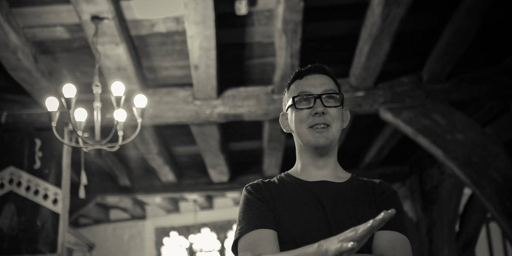Big question: Why have alienated young men, especially in America, found their home in the populist political right? Part of the answer is that the populist right takes video games seriously.
Mind the gap: Games have typically been treated as a bit of a joke by wider society. Long-held stereotypes about games being worthless, provoking violence or turning players into addicts has created a gap between the experience of the millions who play games and the perception of the medium in wider society.
The art of persuasion: For most of us who love games, our way of dealing with this problem has been to try to change minds. We’ve talked about games as an economic powerhouse. We’ve argued that games have cultural power. And we’ve sought to support research that’s provided a level-headed perspective on whether games make people aggressive (they don’t) or if they negatively affect mental health (again, a pretty firm nope).
Tunnelling down: But others reacted differently. A small number of ‘always online’ ‘transgressive’ young men, especially in America, have seen the rejection of games in liberal democratic culture as part of a wider betrayal of their personal and political identity.
Worrying development: And according to James Ball, Political Editor at The New European and author of The Other Pandemic: How QAnon Contaminated the World, those disaffected people have successfully been courted by the populist right and authoritarian governments - fuelling their causes with activism and energy that is helping dismantle the liberal order.



This only became a thing after the pipeline was established. This rhetoric is what the pipeline feeds them.
I remember seeing JonTron videos back in 2011, well before the 2015 gamergate era. Even back then he’d make offhand remarks about how tough it was being White, how badly women treat men, etc. Gamergate in 2015 largely caught the notice of the Right’s political apparatus, and they saw the opportunity to convert the casual misogyny and racism into feeders for their political machine. “Woke” didn’t really become a right-wing attack in the gaming and movie spheres until pretty recently.
You seem to mistake cause and effect. JonTron was an racist and misogynistic asshole because that’s who he was. He wasn’t doing that because he was trying to tap into some kind of audience as a trick.
And he has been largely forgotten because of his behavior and image. People ditched him and moved on. GameGrumps cut him out a long time ago.
Even before that, there was this whole corporate wokeness marketing trope that really drove the concept into the ground, like Popular Movie But Female and adopting it as a business strategy. It’s like kids all running with this popular meme, only for parents to sudden adopt it and it’s not cool any more. So, right-wing spheres to pick it off of the ground, dust it off, and just carry that energy forward, which is unfortunately what they are good at. Leftists are shit at messaging. Like, really really shit at messaging.
And now, you can’t even tell if people are being critical of “wokeness” as a right-wing attack or as a response to corporate synergy marketing bullshit. Because the latter might actually be a good argument, but it’s so abused that most just now assume the former.
I think you’ve mixed up the timeline in my comment.
You’re using ‘woke’ unironically, in the way that the Right does. Neither of those things you posted are Woke, they’re just pandering. Woke means aware of the systemic biases in our social institutions. Your examples aren’t “wokeness”, they’re Feminist Capitalism (and Rainbow Capitalism also gets called ‘woke’ by the Right).
No, that was never what wokeness was (and none of those companies ever called themselves that), it’s just that right-wingers started calling anything they didn’t like “woke”, despite their examples having nothing to do with wokeness.
Leftists have great messaging. If you think messaging is a Leftist problem, I think you’ve confused Liberal, Progressive, and Leftist.
Woke became a simple label for people who blamed women and minorities for their entertainment not living up to their explanation. It became a label for them to use without specifically saying that they didn’t like depictions in the media they liked, which is a big reason they shy away from actually elaborating on what they mean by woke.